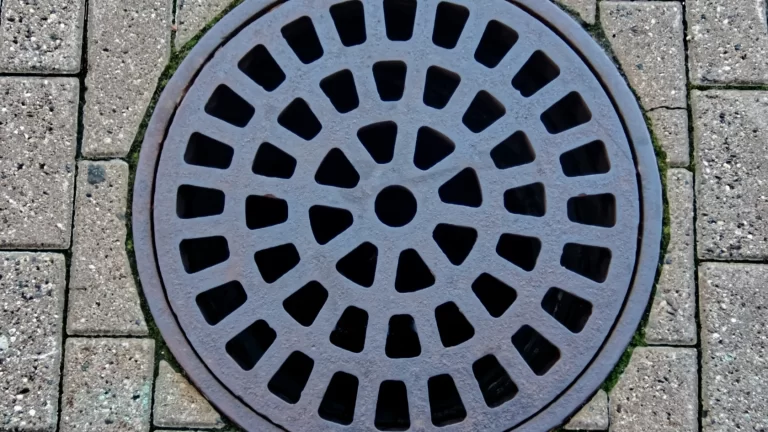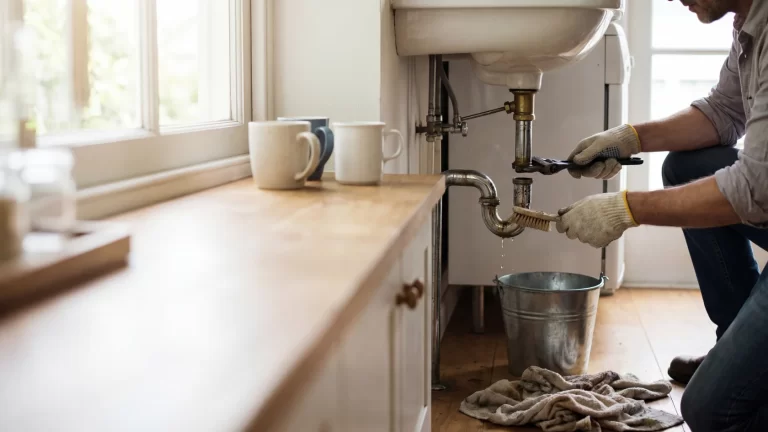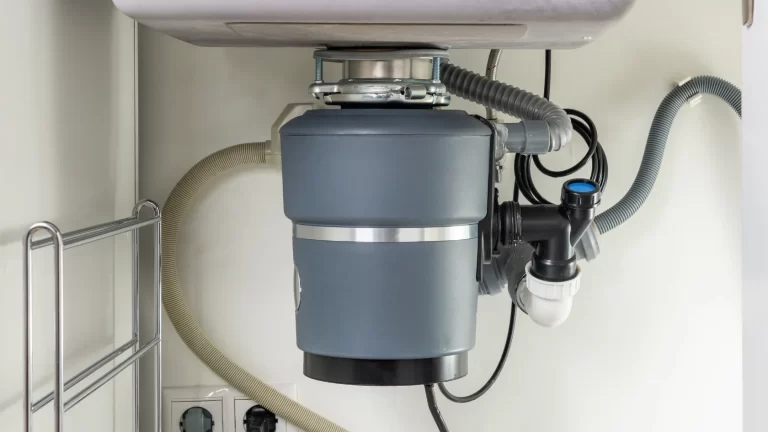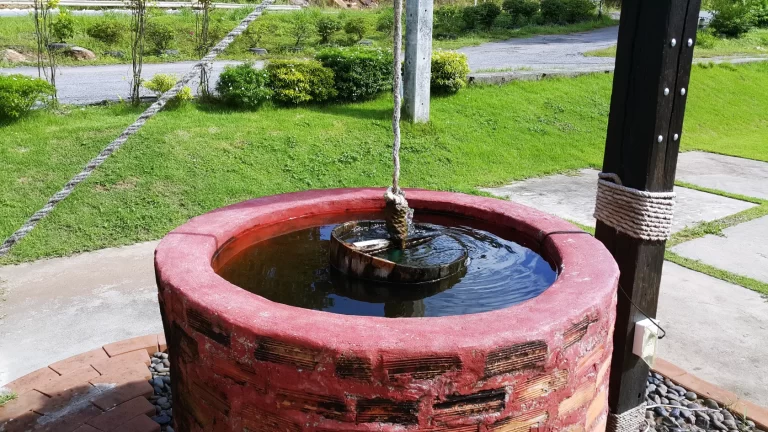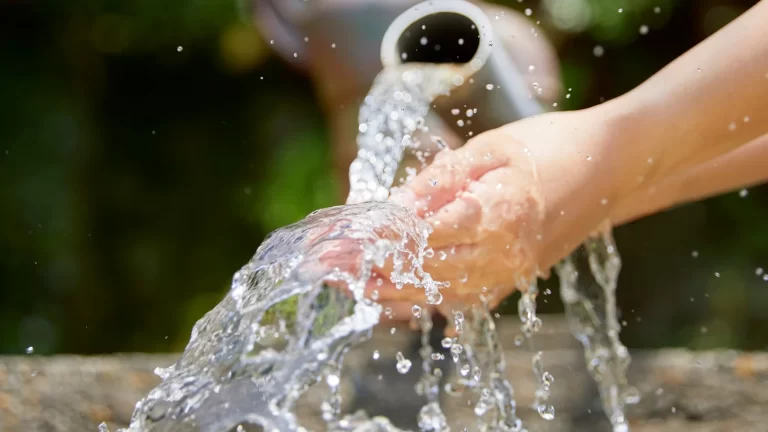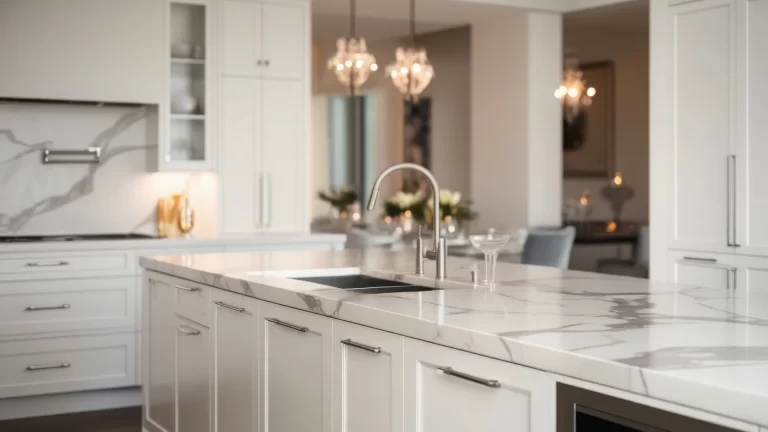It is harmless to rinse the last bit of coffee grounds down the sink after your morning brew. They are, after all, tiny, natural, and may even have a pleasant scent. Coffee grounds may even be able to deodorize and clean drains, according to some people. However, this routine behaviour can be subtly damaging to your plumbing.
Even though it might seem convenient, throwing coffee grounds down the drain is a choice you might come to regret. Like coffee grounds, these microscopic particles can cause costly repairs, persistent odours, and tenacious clogs over time. This blog discusses the reasons why coffee grounds and kitchen sinks shouldn’t mix, the adverse effects of neglecting this problem, and workable solutions that are better for the environment and your house.
Contact us today through our form or call +1 (416) 252-5557 for expert plumbing, drain, and related services in Toronto, Etobicoke, Mississauga, and across the GTA.
Why You Shouldn’t Put Coffee Grounds Down the Sink

Many people believe their garbage disposal unit (also known as a garbage disposer) can handle any food-related waste. And if you think that coffee grounds are okay to be rinsed down because they are organic. Unfortunately, this is a common misconception.
Unlike other food scraps that break down when mixed with water, coffee grounds clump together. Instead of dispersing, they form a dense and sludgy mass that blocks and clogs your kitchen sink. If this habit continues every single morning brew, they will eventually adhere to the interior of your drainpipes rather than being washed away when you pour water over them. This material accumulates over time, obstructing water flow and potentially resulting in complete blockages.
Coffee grounds are particularly problematic because they tend to combine with other common culprits—grease, oil, fat, and soap scum—creating a thick, glue-like substance. This mixture lines the interior walls of your pipes, slowly narrowing the opening until your sink drain is nearly useless, and coffee grounds can actually contribute to this problem if you put them down the drain.
Even if your sink appears to be draining normally, problems can be brewing below the surface. The buildup doesn’t always become apparent immediately, but when it does, it’s rarely a quick or inexpensive fix.
Can Coffee Grounds Go Down Sink Without Clogging? Watch for These Signs

Most of us thought that coffee grounds don’t clog our sink. However, the truth is that they tend to accumulate gradually. Sooner or later, you’ll discover that your sink is already clogged. Therefore, before anything else becomes a more serious issue, it is crucial to learn and identify the common early warning signs that a sink will be clogged. Below is the list of early warning signs:
- Slow draining: If you notice that the water in your sink drains much slower than usual, it may be a sign that a clog is forming.
- Gurgling sounds: Strange bubbling or gurgling noises may indicate that water is having trouble passing through a growing blockage.
- Bad smells: Coffee grounds mixed with food scraps and grease can start to decompose, causing musty or sour odours to emanate from your drain.
- Water backing up can be a sign that coffee grounds are clogging your drains. If water starts rising back into the sink, it usually indicates a more serious clog.
- Leftover particles: Finding bits of coffee grounds or food left in the sink after draining or running the dishwasher is another warning sign of a clogged sink.
Ignoring these red flags may worsen your clogged sink, which could lead to water overflowing and harming your kitchen’s floor and cupboards. It may also cause some mould or mildew if these signs are disregarded.
The Price of Putting Coffee Grounds Down the Sink

Let’s face it. Dealing with a clogged kitchen sink isn’t just frustrating, it can also hurt your wallet. Most homeowners don’t realize the severity of damage that an ordinary substance like coffee grounds can cause until it’s too late. You will only realize the important of proper disposal of coffee grounds makes all difference.
To resolve this faster, you might need to look for an expert or a professional plumber to help you with, depending on the severity of the blockaged or clogged sink. Costs may increase rapidly if the blockage has damaged the pipes or is deeper in the plumbing system.
That’s where working with a trusted plumbing professional, like Absolute Draining & Plumbing, comes in. With over two decades of experience and round-the-clock emergency service, their professional plumbers offer flat-rate pricing and reliable quality to both residential and commercial clients in the Greater Toronto Area.
In homes with older plumbing or septic systems, coffee grounds can do even more damage. They may not just cause a clog-they can also affect the efficiency of your entire drainage system. In worst-case scenarios, repeated drain clogs caused by items flushed down the drain can contribute to long-term pipe damage that may require complete replacement.
Problems with plumbing, like blockages and clogs, can be both annoying and difficult to resolve. Most homeowners think and believe that a commercial drain cleaners can help them with it by identifying the cause of a clogged sink; however, these products don’t usually work and fails to find the root cause once everything is already severed and damaged.
Contact us today through our form or call +1 (416) 252-5557 for expert plumbing, drain, and related services in Toronto, Etobicoke, Mississauga, and across the GTA.
Best Ways to Dispose of Coffee Grounds Without Clogging Your Sink

If the sink is not the right place for coffee grounds, where should they be disposed of? You don’t have to worry about this because there are several eco-friendly alternative and convenient solutions.
1. Compost Bin
Coffee grounds are great for composting because they have a high content of nitrogen. Put the used coffee grounds in your compost bin, together with other organic waste such as vegetable scraps, fruit peels, and leafy materials. To balance the carbon-to-nitrogen ratio, however, ensure that you combine them with “brown” materials, such as leaves or torn paper.
2. Garden Fertilizer
According to some researches, coffee grounds can help improve the soil in your garden. Aside from that, coffee grounds also improve aeration, water retention, and microbial activity. To properly dispose of coffee grounds, sprinkle them directly around acid-loving plants, such as azaleas, blueberries, hydrangeas, and roses, rather than pouring them down the drain. You can even mix them into the soil.
3. Natural Deodorizer
Coffee grounds can absorb odours in your home. Place a small open container of dry used grounds in the fridge, freezer, or near the trash to neutralize unpleasant smells.
4. Household Cleaning Scrub
Their abrasive texture makes coffee grounds useful as a natural scrub. Mix them with a bit of water and use them to clean pots, pans, or your barbecue grill. Just don’t rinse them down the sink afterward—throw them in the bin instead.
5. Pest Repellent
Scatter coffee grounds around outdoor seating areas or garden beds to help deter insects and pests, such as ants, slugs, and snails. By adopting one or more of these methods, you can reduce waste while keeping your plumbing in top shape.
Already Put Coffee Grounds Down the Sink? This Is What You Must Do

If you have already been washing the coffee grounds down the sink, don’t panic. Here are some remedies you can try to mitigate or reverse the damage caused by putting coffee grounds down your sink.
1. Flush with Boiling Water
Boiling water can help remove and dissolve some grease, as well as loosen minor blockages. As a precaution, pour a kettle of boiling water down the drain once a week. It won’t break up solid clogs, but it can help slow the progression of the clog.
2. Use Baking Soda and Vinegar
It’s a safe and environmentally friendly do-it-yourself solution. Prepare one cup of white vinegar and a half cup of baking soda. Mix it together and let the mixture settle for 10-15 minutes with the drain covered. Then, use boiling water to flush away any remaining coffee grounds that may clog your drains.
3. Try a Plunger
If the two previous methods didn’t work, you can use a sink plunger if the drain is already slow. But before anything else, prepare a wet cloth and use it to block the overflow hole.
4. Use a Drain Snake
A flexible drain snake or auger can physically remove blockages in the P-trap or further down the pipe. These are reasonably affordable and readily available at most hardware stores for efficient drain cleaning.
5. Call a Professional
If home remedies or DIY methods aren’t enough to clear the clog or are not working, calling a licensed and professional plumber is the best course of action. Professional plumbing services, such as Absolute Draining & Plumbing, specialize in addressing problems like a clogged sink caused by coffee grounds.
Aside from Coffee Grounds, What Are The Things That Can Clog Your Sink?
Aside from coffee grounds, there are other things you should avoid near your kitchen sink. Here is the list of items or products that cause clogs.
- Grease, fats, and oils: These are the products that solidify in pipes, which contribute to sticky blockages that can be exacerbated by washing coffee grounds down the drain.
- Starchy foods: These are pasta, rice, and potato peels, which expand in water and cling to other debris.
- Fibrous materials: The skins of onions, celery, and maize husks can clog the garbage disposal.
- Eggshells can also cause issues if they are flushed down the sink, as they can combine with coffee grounds and create a more stubborn blockage. Their membrane can wrap around the grinding mechanism.
- Non-food items: Cigarette butts, paper towels, and even dish sponges have no place in the sink.
Waste, including food waste such as coffee grounds, should be disposed of properly. In the compost or trash can, if you are unsure. Consider your sink to be a water channel rather than a trash can.
Small Steps Matter: Say No to Coffee Grounds in the Sink
It may seem harmless to rinse coffee grounds down the sink, especially during a busy morning, but over time, this habit can contribute to drain buildup and plumbing issues. Coffee grounds tend to cluster together and adhere to the inside of the pipe. And the results? A more serious plumbing issue, such as slow drainage, recurring clogs, and potentially costly repairs, may occur if the early red flags are not addressed promptly.
To avoid this, the essential and straightforward solution is to dispose of the used coffee grounds in the trash, compost bin, or use them for household purposes—like neutralizing odours or enriching garden soil—can go a long way in avoiding plumbing headaches.
If you ever do encounter persistent drainage problems, it may be time to seek professional help. In cities like Toronto, experienced plumbing companies, such as Absolute Draining & Plumbing, utilize techniques like camera inspections and no-dig solutions to assess and resolve issues efficiently—without unnecessary disruption to your home.
Being thoughtful about what goes down your sink is a small and simple step that can help prolong the life of your plumbing system and reduce the chances of expensive repairs.
Contact us today through our form or call +1 (416) 252-5557 for expert plumbing, drain, and related services in Toronto, Etobicoke, Mississauga, and across the GTA.


